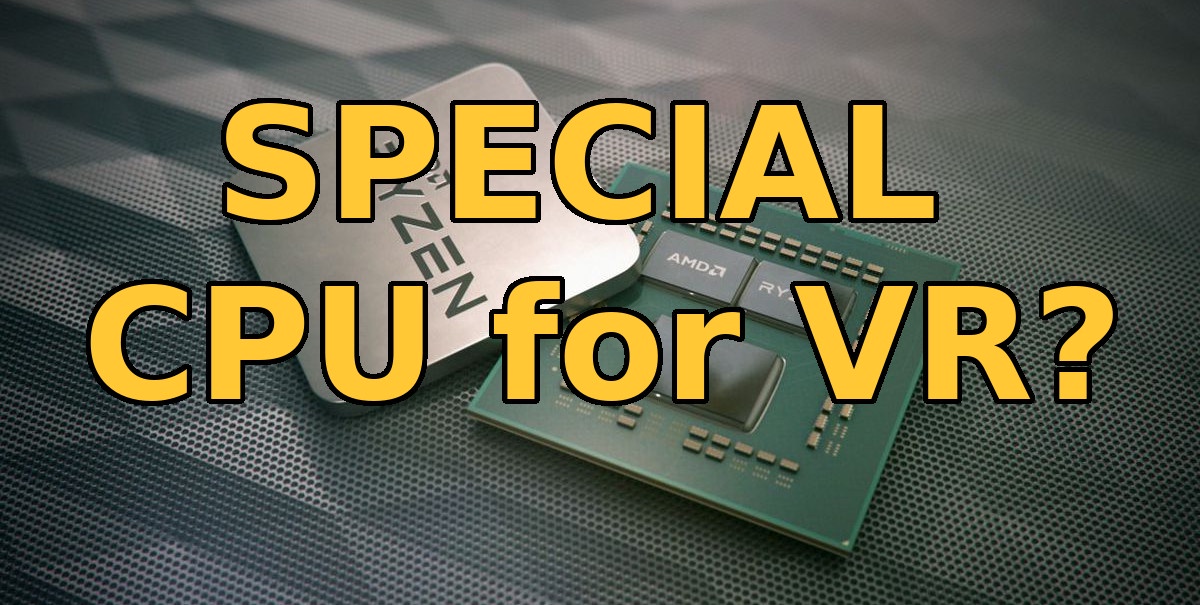You probably already know that if you wanna game in virtual reality on your home computer, you need a powerful enough graphics card. And you've been inundated with information about just how much money you should invest in one. But what about the CPU? Are there any special considerations you should take into account for your VR rig? Or can you just plop in any chip that isn't bargain-basement quality and be done with it?
Let's start with some simple advice. Check the recommended specs on the VR headset manufacturers website and make sure that your CPU is at least up to that standard. But seeing that you might find yourself thinking well, the listed CPU, actually isn't all that high end. For example, Oculus only recommends a 2014 vintage Core i5 4590 for their Rift S which is their current PC connected offering.
Unfortunately, that doesn't mean that it's a good idea to only pay attention to the recommended spec. You see the reason that VR headsets need powerful hardware is because you need to push more pixels than a standard gaming PC.
For example, the aforementioned Rift S has a 1440P display that runs at 80 Hertz. And while those specs might be a luxury for conventional gaming, it's more of a baseline for virtual reality. This is because lower resolutions and frame rates in VR, aren't just an annoyance, they can break immersion to the point where you'll actually get motion sickness. So if you thought stuttering in regular games was irritating, just wait until you're throwing up on your living room carpet because of slowdowns in a VR title.
This also means that there's more to consider than just making sure that your GPU is pushing out enough frames. You want to have good and consistent frame times. Meaning each frame will be displayed on the screen for roughly the same amount of time for smooth animations without stutters and inconsistent frame times can be caused by a number of things. One of which is a CPU that can't keep up with handling and scheduling all the data that it sends to your graphics card.
You see the CPU has to give the GPU something else to work on once the GPU is done, rendering a frame.  And if your GPU is spitting out tons of frames per second, like you would need to game in VR. The CPU is gonna have a harder time keeping up if it isn't up to scratch.
And if your GPU is spitting out tons of frames per second, like you would need to game in VR. The CPU is gonna have a harder time keeping up if it isn't up to scratch.
Traditionally, rendering requests such as draw calls were single-threaded. But newer APIs like DirectX 12 allow draw calls to be spread over multiple threads. So unsurprisingly, it can really help in VR to have a couple of extra cores and a little more speed than whatever the recommended specifications are.
And this is especially true, if you are streaming in VR, even if you're using your graphics card to encode your video stream, instead of the CPU, your CPU still needs some dedicated course to handle receiving the encoded frames from the graphics card, especially when you consider that the CPU already has to work a bit harder not only due to the frame time issue we just discussed but because it's more taxing for your CPU to handle VR head tracking than it is to simply process keyboard and mouse inputs with a conventional game.
So given that six course is a baseline for modern gaming rigs, especially as games are becoming more and more complex and better at taking advantage of multiple course. We'd say an eight core modern architecture processor for VR is probably a good bet and a 10 core wouldn't hurt, if you're streaming with CPU encoding.


No comments yet